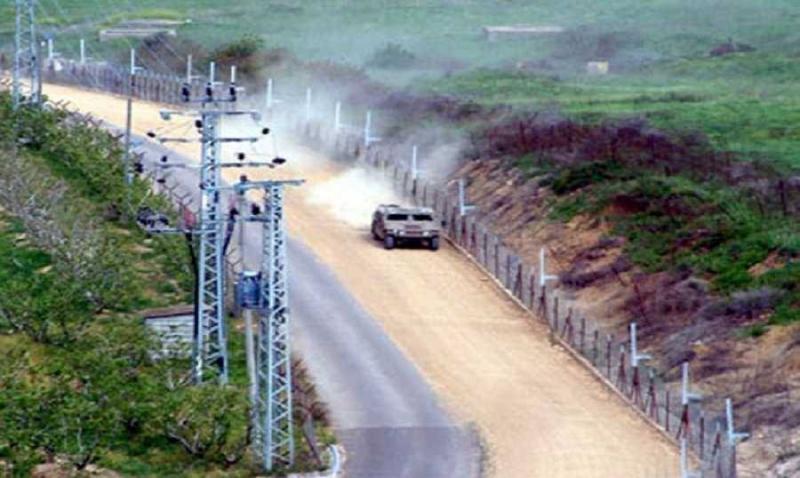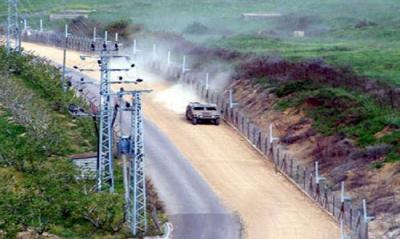The confrontation between Hezbollah and Israel has intensified following the assassination of one of its prominent field leaders, Taleb Sami al-Abdallah, escalating since the party announced its support for Hamas in Gaza on October 8. This places southern Lebanon on the brink of upheaval and warns of a potential military escalation. U.S. Secretary of State Antony Blinken, during his eighth tour of several countries in the region, is intervening politically to prevent a prolonged conflict on the Gaza front, as it will inherently reduce tensions on the southern front.
The assassination of leader Taleb al-Abdallah dealt a moral blow to Hezbollah, which has begun to expand its bombardment capabilities using advanced weaponry against Israel, asserting that the confrontation will not be the same as before his assassination. This was echoed by the head of the party's executive council, Hashem Safi al-Din, who threatened Israel with more severe and substantial operations. However, according to a Western diplomatic source, this does not imply that the party seeks to widen the war, although it is prepared for such an expansion should Israel initiate it. The United States and most European Union countries have repeatedly informed Tel Aviv that they are not inclined to provide political cover for it and prefer a diplomatic solution to restore calm along the Hezbollah front.
Washington is advising restraint, and the Western diplomatic source revealed that communications between Washington and Lebanese Prime Minister Najib Mikati, as well as Parliament Speaker Nabih Berri—who is negotiating with U.S. mediator Amos Hochstein on behalf of Hezbollah—have been ongoing, emphasizing the need for self-control and cautioning Hezbollah against miscalculating its response to the assassination of al-Abdallah. While Hezbollah has started to target the Israeli depth more broadly, this effort has remained confined to areas ranging from the Upper and Western Galilee to the occupied Golan Heights, passing through Tiberias, without extending to economic depths from the sea to adjacent cities for the time being.
Political sources indicated that the confrontation between Hezbollah and Israel remains under control despite the increasing threats from Israeli Prime Minister Benjamin Netanyahu and his military leadership to expand the conflict. They confirmed that he is under U.S. pressure to cease fire in Gaza and is currently attempting to buy time to impose his conditions for restoring calm in southern Lebanon, trying to leverage the assassination of the party leader to improve his domestic standing against his opponents.
The political sources highlighted that predicting the outcome of the confrontation in the south is challenging without considering U.S. efforts for a ceasefire in Gaza. They questioned whether Netanyahu would exploit the time factor to preempt U.S. mediation and commit an uncalculated adventure by targeting sensitive areas beyond the south that would provoke a similar response from Hezbollah. Netanyahu continues to pressure Washington while trying to evade the pressures it exerts on him to accept the UN Security Council's ceasefire resolution in Gaza.
As a result, the situation in southern Lebanon is set to enter a phase of heightened anxiety, given that the ceasefire in Gaza is intimately linked to returning calm in the south. Therefore, vigilance remains high, open to all possibilities, as long as a truce in the Gaza Strip remains elusive.
The ceasefire in Gaza is fundamental. Thus, the confrontation in the south could escalate at an unprecedented rate if Netanyahu undertakes a military adventure seeking to widen the war, compelling Hezbollah to respond to prevent this expansion. Hezbollah's targeting of Israeli depth sends a clear message to Tel Aviv that it will not remain idle, especially since this time it accompanied the attacks with advanced weaponry previously unseen in its arsenal and demonstrated a clear military advantage capable of targeting areas beyond Haifa.
The essential question arises: Did Hezbollah's response to the assassination of leader Taleb al-Abdallah match the gravity of the loss inflicted upon it? How will it act moving forward to achieve a balance of terror that Israel must consider seriously? The situation in the south continues to hinge on the ceasefire in Gaza, which could heighten tensions amid growing fears of a loss of control, even as the party exercises utmost restraint, reserving the right to respond to Israeli strikes on areas in the Bekaa's depth.
Consequently, a political reference remarked, in response to inquiries from visitors, "Tell me what will happen in Gaza, and I will tell you where the south is heading," without dismissing ongoing communications between Washington and Tehran, which have opposed the expansion of the war from the outset, although the final word remains in the hands of the battlefield, according to "Asharq Al-Awsat."




